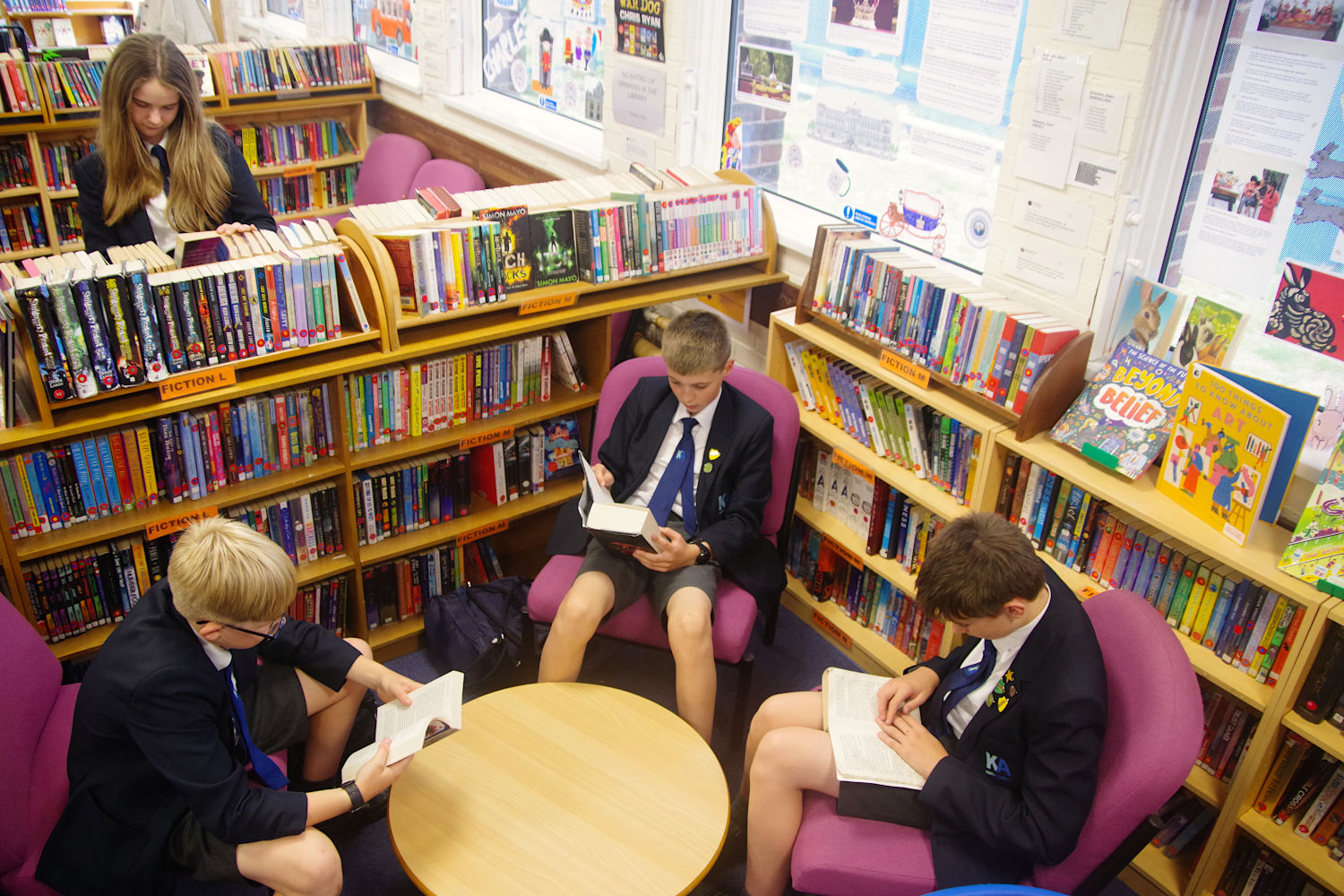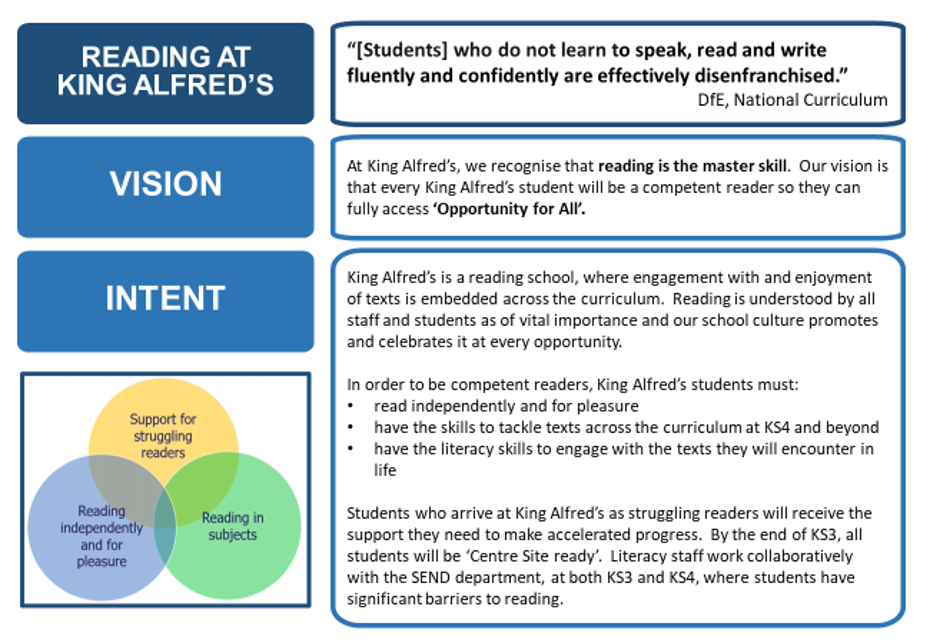Literacy and Reading

At King Alfred’s, we understand that strong literacy is crucial for academic and personal success. We encourage and support students to read for pleasure and progress. We foster enthusiasm for reading by offering students a multitude of positive and empowering experiences of a wide range of texts. For students who find reading challenging, we put in place effective interventions and utilise different programmes with groups and individuals to see what works, adjusting our provision if needed. We have a burgeoning Academic Reading programme that makes text the beating heart of lessons across the curriculum. Our literacy work has attracted national attention with many requests to visit our school to see best practice in action.

How we embed reading for pleasure and progress into the curriculum
All students are required to have a reading book with them at all times. Reading engagement and progress is monitored, especially in KS3.
- 90% of our Year 7 & 8 students report they read as much or more as in primary school, with 53% saying they read more
Reading Development lessons are integrated into the curriculum for all Key Stage 3 students
- ‘Accelerated Reader’ (AR) lessons take place once per fortnight with a teacher who monitors reading.
- 30 Surface Pro laptops are allocated for use in AR lessons and the library; these facilitate comprehension quizzing and the use of the MyOn platform, with 6000+ audio/e-books on a wide range of topics
- Star Tests are taken 3-4 times per year to monitor reading progress
- In 2022-2023, 270+ million words were read by Year 7 and Year 8, with 90+ ‘word millionaires’ proudly wearing their word millionaire badges
Dynamic libraries foster a strong reading culture
- Excellent, diverse book collection with new titles added regularly throughout the year
- Numerous activities and events take place in the West library, including Carnegie/Jhalak/UKLA Shadowing; Summer Reading Bingo; ‘Read your way’ challenges; World Book Day events; and celebrations linked to national events
- Centre Library open to students with a developing book collection and assistance from Sixth Formers
- Families supported with booklists and advice to help young people develop their reading
Our systematic and successful reading intervention
- Reading Partners programme is well-established, reaching 40-50 students each year
- Students with lw reading attainment receive weekly one-to-one reading sessions with trained volunteers and Sixth Formers, supervised by the Reading Intervention Specialist
- Decoding & fluency small groups address students’ specific reading barriers
- Pupil Premium Learning Mentors and a Dyslexia Tutor offer weekly one-to-one support
- Reading Counselling and After-school Reading Support sessions by the Reading Specialist provide one-to-one advice for 50+ reluctant and struggling readers
- We have heavily invested in books that have proven appeal to students who find reading challenging, including Barrington Stoke dyslexia-friendly books; Badger books for reluctant readers, Oxford University Press Super-Readable series; and Manga/graphic novels.
- Teachers have received whole school CPD on how they can support struggling readers in their classes
The development of Academic Reading, Vocabulary and Oracy across curriculum areas
- Academic reading and effective teaching of vocabulary have been integrated into the school’s Teaching and Learning Blueprint – the key guidance for teachers on how to deliver lessons. A whole school priority has been to systematically integrate Academic Reading into the curriculum with ‘text as the beating heart of the lesson’. To support this, training for teachers has taken place. Work continues in departments to ensure students have a well-planned subject reading experience with regular and sustained reading of disciplinary and/or academic texts.
- Teachers have been trained to model metacognitive reading strategies – for example asking “as expert readers, what do we do when faced with a challenging text? How do we actively engage with texts to help us understand and remember? How do we build our background knowledge to improve comprehension?”
- Analysis of exam papers in every subject has been completed to indicate reading age requirements for each subject; this information has been communicated to students and parents in the GCSE Pathways booklet.
- Oracy development is a school priority, including showing respect through careful listening and thoughtful responses to others’ ideas; and displaying knowledge by ‘speaking like a subject expert’.
